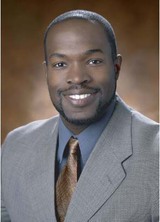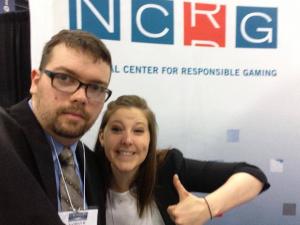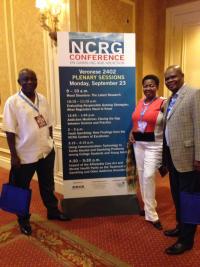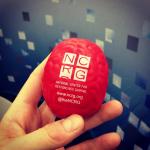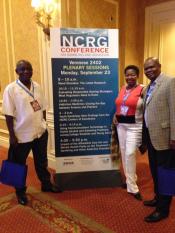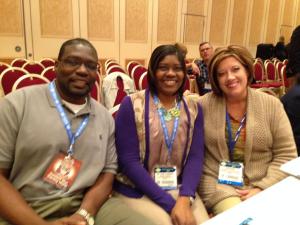
Many people may not know that 95 percent of people with gambling disorder also have another mental health disorder as well (Kessler et al., 2008). This stunning reality should influence every aspect of how researchers, clinicians and even the media approach the topic of understanding, diagnosing and treating gambling disorders. This co-occurrence of multiple disorders in an individual (called “comorbidity”) presents many unique challenges for the identification and treatment of gambling disorder. Research that can provide insights into comorbid conditions can be beneficial for clinicians and researchers alike.
One recent study on this topic came from Iman Parhami, M.D., M.P.H., a psychiatry resident at the Delaware Division of Substance Abuse and Mental Health, who conducted a survey to examine many health-related issues associated with gambling behaviors and other demographic data. Longtime readers may remember that Dr. Parhami won theoutstanding poster awardat the NCRG conference in 2011.
Dr. Parhami presented the results of this study at the annual meeting of theAmerican Academy of Addiction Psychiatry, a conference he attended with the help of anNCRG travel grant. The study examined over 34,000 representative Americans who were surveyed once in 2001-2002 and again in 2004-2005.
To find out how gambling behavior influenced health outcomes three years later, Dr. Parhami and his collaborators split the survey participants into four groups based on their gambling behaviors:
- people who did not gamble (the non-gambling group),
- people who gambled but experienced no problems (the recreational gambling group),
- people who experienced one to three gambling-related problems (the problem gambling group), and
- people who experienced 4 or more problems (the gambling disorder group).
The researchers then examined the likelihood that people in each of these groups developed a mental health disorder during the three-year follow-up period.
Researchers found several interesting conclusions. First, the groups with more gambling-related problems also had more other mental conditions during the first survey. That is, the gambling disorder group (group 4) had more disorders than the problem gambling group (group 3), which had more disorders than the recreational group (group 2), which had more problems than the non-gambling group (group 1). This study was not designed to examine whether gambling disorder or one of the other mental health disorders occurred first. One study that did examine this question found that, in three out of four cases, the non-gambling disorder preceded gambling disorder (Kessler et al., 2008).
Second, the more gambling problems a group had, the more likely the group members were to develop further mental health conditions. For example, the gambling disorder group experienced more disorders than the problem gambling group. While it was not surprising that the people with the most gambling problems were most at-risk for developing additional disorders, it was interesting that the recreational gambling group experienced more disorders than the non-gambling group, as neither group was experiencing gambling problems at the time of the first survey. More research will need to be done to better understand this finding.
The final, most interesting conclusion was that the risk of developing mental health conditions was very different between disorders, with risks increasing for some disorders, staying about the same for others and decreasing for a few.
The NCRG asked Dr. Parhami to talk about this phenomenon, and he noted that, in general, people with gambling disorder had about four times more risk of developing another disorder than non-gamblers. However, he stated, “Those with gambling disorder were less likely to develop social phobia.” Social phobia is a strong fear of being judged or embarrassed by others. Dr. Parhami continued, “I suspect that those with gambling disorder are more likely not to develop a social phobia due to the amount of the exposure to social settings for gamblers.”
One takeaway from this study is that even though people with more gambling problems tend to have more risk for developing other disorders in general, that risk is not evenly distributed. Knowing what specific conditions people with gambling disorder are most at risk of developing can lead to more targeted prevention services and more effective interventions. As Dr. Parhami said, “Overall, the negative and positive associations both deserve further research examining why some gamblers develop co-occurring disorders, while others do not.”
For more information on Dr. Parhami’s collaborators, visit theDelaware Division of Substance Abuse and Mental Health website. If you are interested in anNCRG Travel Grant, or any of our grant opportunities, visit thegrants page of the NCRG website. As always we welcome your thoughts and questions below.
References
Kessler, R. C., Hwang, I., LaBrie, R., Petukhova, M., Sampson, N. A., Winters, K. C., & Shaffer, H. J. (2008). DSM-IV pathological gambling in the National Comorbidity Survey Replication.Psychol Med,38(9), 1351–60. doi:S0033291708002900 [pii] 10.1017/S0033291708002900
NCRG staffResearch Updatecomorbiditygambling disordersNCRG Travel GrantOutstanding Poster Award



